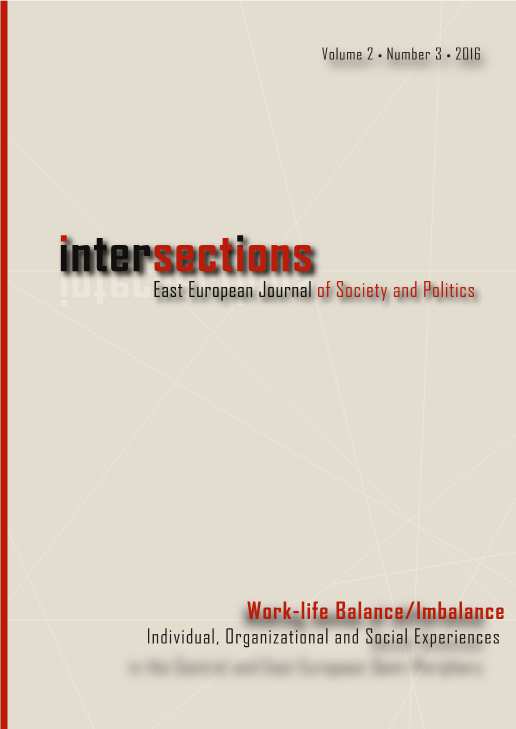Behaviour-based Work-Family Conflict among Hungarian Manager Fathers
Behaviour-based Work-Family Conflict among Hungarian Manager Fathers
Author(s): Nikolett GeszlerSubject(s): Gender Studies, Family and social welfare, Social Norms / Social Control, Socio-Economic Research
Published by: MTA Társadalomtudományi Kutatóközpont Kisebbsegkutató Intézet
Keywords: work-family conflict; behaviour-based conflict; involved fatherhood; ideal employee; managers; work-life balance
Summary/Abstract: The paper focuses on a special type of conflict that emerges from the contradictory demands of work and family life, assuming that the gap between the ideal manager and the involved father might serve as significant conflict source in men’s life. In order to test the assumption an interview-based case study was made at the Hungarian subsidiary of a Scandinavian multinational service sector company, where 43 face-to-face semi-structured interviews were conducted with manager fathers. The interviews were analysed with the use of NVivo10 on the principle of qualitative content analysis. According to the findings behaviour-based work-family conflict is not the major source of conflict between work and family responsibilities, rather the contrary, managerial and father roles often enhance each other. In those cases when manager fathers have experienced conflict it appeared in two forms: as a double pressure that fathers are expected to be both traditional breadwinners and available involved fathers and as the difficulty to switch from managerial role into father role. The low level of behaviour-based conflict can be explained by the traditional division of labour and gender attitude in Hungary that conforms to the workplace’s expectations about ideal employees.
Journal: Intersections. East European Journal of Society and Politics
- Issue Year: 2/2016
- Issue No: 3
- Page Range: 118-137
- Page Count: 20
- Language: Hungarian

